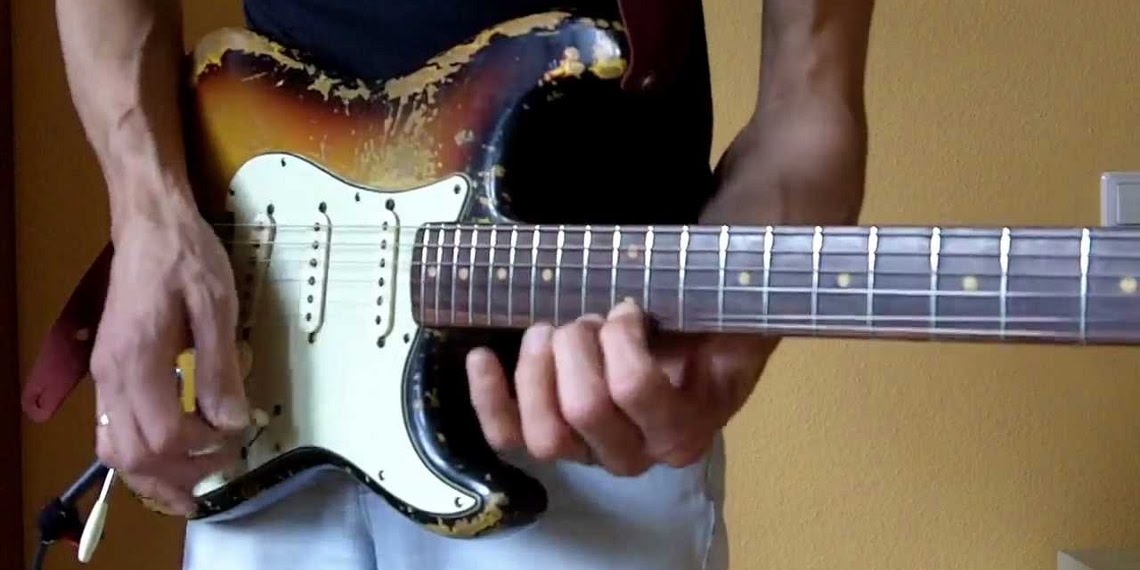Many second-hand items should be avoided, such as bubble gum, underwear, and toilet paper. Musical instruments, however, are one of the few luxories in this world that are often better when previously-owned.
That New Guitar Ain't So New
Have you ever purchased a brand new video game from Gamestop? Watch as they open the CD drawer behind the counter, grab your unsealed game disc, insert it back into its original box, then charge you more than what it costs from an online retailer like Amazon. That's exactly how retail music stores operate.
Behold the wall of new guitars. Each guitar has been removed from its box and put on display for the world to play before that final day you decide to purchase it. By the time that guitar gets purchased it has been handled by hundreds of grubby hands attempting to play 'Smoke on the Water' and 'Iron Man'. Your new guitar will now feature dings, dents, scrapes, scratches, nicks, and even fret wear. This usually wouldn't be a problem if you weren't paying full retail price, plus tax, on your "brand new" guitar.
Used Instruments Are Like A Fine Wine
Like a fine wine, a musical instrument can get better with age. While not the rule for all instruments, it's generally accepted that all wood stringed instruments sound better the more they are played and therefore, the older they get, the better they sound.
Researchers in England say that laboratory tests conducted on wood commonly used to make violins supports age-old claims by musicians that the regular playing of a stringed instrument improves its tone.
Dr. David G. Hunt of the School of Engineering Systems and Design at South Bank University in London says his studies with pieces of spruce show that continuous forced vibrations similar to those experienced with regular use of a musical instrument changes the nature of the wood.
http://www.nytimes.com/1996/02/27/science/when-violinists-play-their-violins-improve.html
This means any individual instrument, when played frequently, will improve over time. This does not mean that a crappy guitar will sound better than a great guitar over time. Again like wine, a 100 year old bottle of 2 Buck Chuck will not taste better than a 1985 Chateau Lafite-Rothschild Bordeaux. Both might become better than they originally did, but only as much as its own craftsmanship and quality will allow.
Many quality new violins, such as the affordable Yamaha AV5, are seasoned and aged for a minimum of 5 years before they are sold to the general public. Unfortunately, this practice has not extended to guitars or any other musical instrument marketplace. You are better off looking for a naturally-aged used instrument that has been loved and well taken care of for many, many years.
Don't Pay Extra For That Relic Job
We love the look of a vintage guitar that has been naturally worn down over time. When I see a scratch on the body of a guitar I imagine the tour bus it could have happened in. A "relic" is a term used for a new guitar that has been intentionally and artificially made to look old. It is a very time consuming and skilled process when done correctly, and thus a very expensive option.
A "relic" guitar is prominently associated with Fender. Gibson fans have not adopted the relic craze yet. This is most likely due to how Fender's Custom Shop embraces the relic and offers a very expensive option to make your brand new guitar look like it was used. They often look fantastic; but why pay thousands of dollars for a relic when you can buy a real used guitar with a real history?


